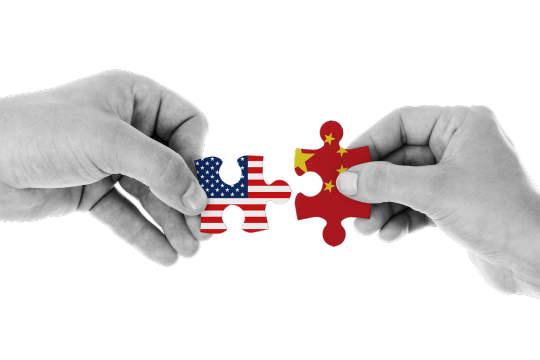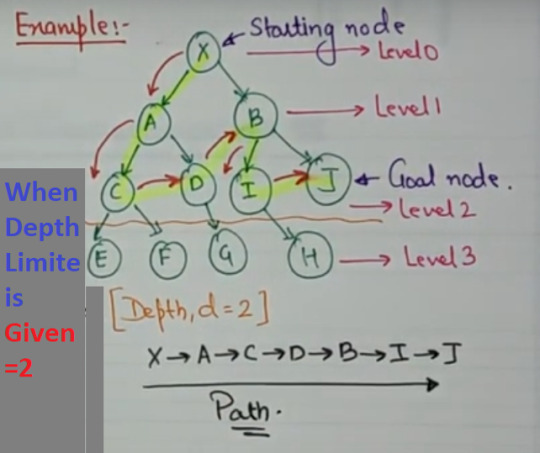#iterative deepening search in artificial intelligence
Explore tagged Tumblr posts
Text
Iterative Deepening Depth First Search In Artificial Intelligence
Iterative Deepening Depth First Search In Artificial Intelligence
In this article will try to understand what is Iterative Deepening Depth First Search In Artificial Intelligence, properties of ID-DFS in AI, Algorithm of ID-DFS , example of ID-DFS & Advantages – Disadvantages of ID-DFS in Artificial Intelligence. Iterative Deepening Depth First Search In Artificial Intelligence comes under the Uninformed search technique .In Previous article we have studies…

View On WordPress
#artificial intelligence#depth first iterative deepening#depth first search#depth first search in artificial intelligence#Depth Limited Search In Artificial Intelligence#iterative deepening#iterative deepening depth first search#Iterative Deepening Depth First Search In Artificial Intelligence#iterative deepening search#iterative deepening search algorithm in artificial intelligence#iterative deepening search in artificial intelligence
0 notes
Text
Artificial Intelligence MCQs Questions & Answers
Artificial Intelligence MCQs Questions & Answers
Artificial Intelligence MCQs On AI introduction , What is AI, Foundations of AI , History of AI, Problem Solving , Searching for Solutions, Types of Search Strategies , Uninformed Search, Breadth-First Search, Depth-First Search, Iterative Deepening , Functions, Local Search Algorithms and Optimization Problems , Adversarial Search: Minmax Algo, Alpha Beta Pruning , Introduction to Reasoning…

View On WordPress
0 notes
Text
Politics: What's Trending in China and America

China and America are two of the most influential superpowers globally, with China being the third-largest economy on earth and America leading the way in innovation. But what's happening in these countries politically? Though they might seem like two completely different entities, it turns out that politics in China and America are trending in similar directions.
With its authoritarian government, internet censorship, and rampant corruption, China quickly becomes a leader in digital totalitarianism—a modern iteration of Orwell's 1984. Meanwhile, America has been more divided than ever before with Trump's presidency. And though some say that his tenure will be short-lived, others believe that he will usher in an era of authoritarianism across the globe. So let's take a closer look at what's going on between these two global powers.
Overview of China
To understand the political climate in China, we must first understand the country's history. The Communist Party of China was founded in 1921 and led by Mao Zedong until he died in 1976.
After Mao's death, Deng Xiaoping became China's paramount leader and instituted a series of economic reforms which ushered in what some call "The Age of Capitalism" and others call "The Era of Reforms." Deng died in 1997, and since then, the party has been led by Jiang Zemin, Hu Jintao, and Xi Jinping.
China is not your typical democracy: its communist regime puts tight restrictions on what Chinese citizens can do or say online—including censoring popular Western social media sites like Facebook, Twitter, Snapchat, Youtube. There are also strict restrictions against domestic social media sites that refuse to comply with government censorship guidelines. This type of internet censorship is part of what experts call "digital totalitarianism"—a modern iteration of Orwell's 1984.

Overview of America
America is a democratic nation that stands among the most powerful in the world. It has a rich history of immigration and diversity while retaining its iconic patriotism. And with Donald Trump's presidency, America will soon have an administration unlike any other in modern times.
China is becoming more digital totalitarian.
China has been investing heavily in artificial intelligence and robotics, soon surpassing America. But, according to a recent article by the New York Times, China's government is using these technologies to control its people and spread its influence. Most notably, China has reportedly built "a digital totalitarian state" through online censorship.
China's Great Firewall blocks around 13 million websites, breaking up Google services and forcing internet users to use Baidu for search engine queries. The government also monitors social media sites like Facebook and Weibo so they can censor any anti-government sentiment before it spreads. This level of surveillance reinforces the Chinese Communist Party's legitimacy while simultaneously censoring dissenting opinions that could undermine it.
China is also expanding AI capabilities with facial recognition systems to identify and track dissidents within their country and other authoritarian governments abroad to expand their reach and power.
America is becoming more divided.
Donald Trump's presidency has polarized the country more than any other administration in recent history. His approval rating has dipped to 37 percent, making him the most unpopular president in recent memory. Though his campaign largely focused on targeting minority groups, he has had little success in bringing them on board. Instead, his policies have only deepened America's racial divide.
For example, during his presidency so far, there have been a total of 935 hate crimes committed against Muslims and 1,700 against Jews. Additionally, while 61 percent of white Americans believe that their race is treated unfairly and 45 percent believe that the "white race" is under attack in America today, blacks and Hispanics disagree with this sentiment. That statistic shows just how divided Americans are along racial lines.

What does this mean for us?
China and America have a lot of similarities when it comes to politics. And this is important for us because they are two of the world's most influential superpowers. So what does this mean for us? Well, if China continues down the path of authoritarianism, we might see more restrictions on basic human rights and internet censorship.
It could also have an impact on innovation in China, as they may be more interested in emulating ideas from America instead of pursuing their own. In America, however, Trump will either continue to dismantle democracy or usher in a new era of authoritarianism across the globe—depending on who you ask. Either way, it brings up a lot of questions about the future and what effect these political trends will have on us in years to come.
Conclusion
China and America are becoming more different, and there are many implications for the future. China's online censorship is a strict reminder of what can happen if we do not stay vigilant. We must remain knowledgeable of the world around us and what is happening globally.
Be it politically or socially; we must be aware of the trends and be able to adapt and grow with them. We cannot isolate ourselves and choose to be ignorant of the world. To succeed, we must seek to understand and be open to new ideas
0 notes
Text
CENG462 Artificial Intelligence Homework 1 Solved
CENG462 Artificial Intelligence Homework 1 Solved
1 Objectives
This assignment aims to assist you to expand your knowledge on informed search in the cases of A* and Iterative Deepening A* algorithms.
2 Problem Definition
In this assignment, you are going to solve a given N-puzzle by using A* and Iterative Deepening A* algorithm.
You already know what N-puzzle is, but just to refresh your memory, here is the definition of N-puzzle:
N-p…
View On WordPress
0 notes
Text
Artificial Intelligence Assignment 1 Solution
Artificial Intelligence Assignment 1 Solution
(2 points) Solve the problem of finding a route from Timisoara to Bucharest using the various uninformed search strategies (both tree-search and graph-search variants) discussed and report statistics (number of expansions and solution cost). See the slides for the Romania map. The accompanying code has implementations for several search strategies, but not all, e.g. iterative deepening is not…
View On WordPress
0 notes
Link
Posted by g_surma via /r/artificial. Join Discussion: http://bit.ly/2G3zZwt. Curated by: www.eurekaking.com
0 notes
Text
Depth Limited Search In Artificial Intelligence
Depth Limited Search In Artificial Intelligence
In this article will try to understand what is Depth Limited Search In Artificial Intelligence, properties of DLS in AI, Algorithm of DLS, example of DLS & Advantages – Disadvantages of DLS in Artificial Intelligence. Depth Limited Search In Artificial Intelligence comes under the Uninformed search technique .In Previous article we have studies about Depth First Search(DFS) & Breadth First…

View On WordPress
#advantages and disadvantages of depth limited search#Algorithm of Depth limited serach#artificial intelligence#depth first search#depth limited seach example#depth limited search#depth limited search algorithm#depth limited search bangla tutorial#depth limited search example#Depth Limited Search In Artificial Intelligence#depth limited search in artificial intelligence in hindi#dls algorithm in artificial intelligence#dls artificial intelligence#dls in artificial intelligence#example of Depth limited search#iterative deepening search in artificial intelligence
0 notes
Text
COMP3411/9814 Artificial Intelligence Assignment 2 – Heuristics, Search, Learning Solved
COMP3411/9814 Artificial Intelligence Assignment 2 – Heuristics, Search, Learning Solved
Question 1: Search Algorithms for the 15-Puzzle
In this question you will construct a table showing the number of states expanded when the 15-puzzle is solved, from various starting positions, using four different searches:
Uniform Cost Search (with Dijkstra’s Algorithm)
Iterative Deepening Search
A*Search (using the Manhattan Distance heuristic)
Iterative Deepening A*Search
Go to the Course Web…
View On WordPress
0 notes